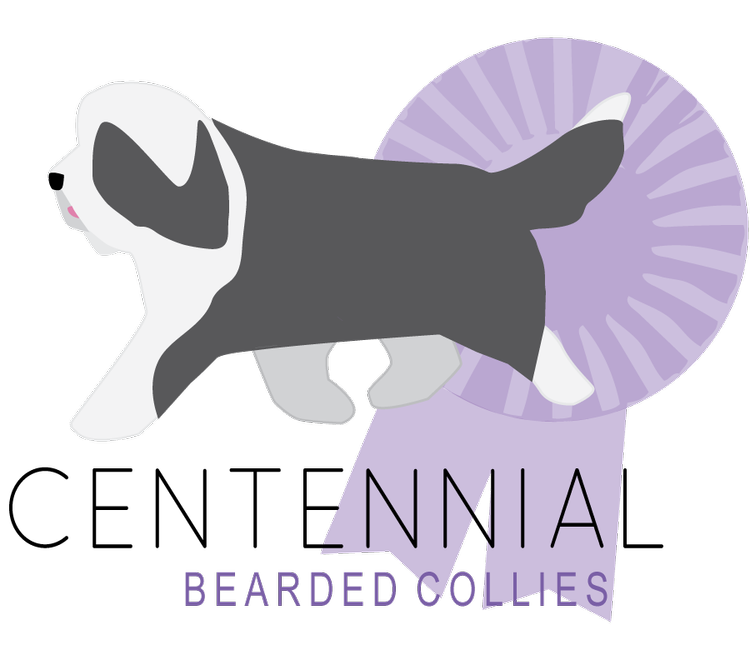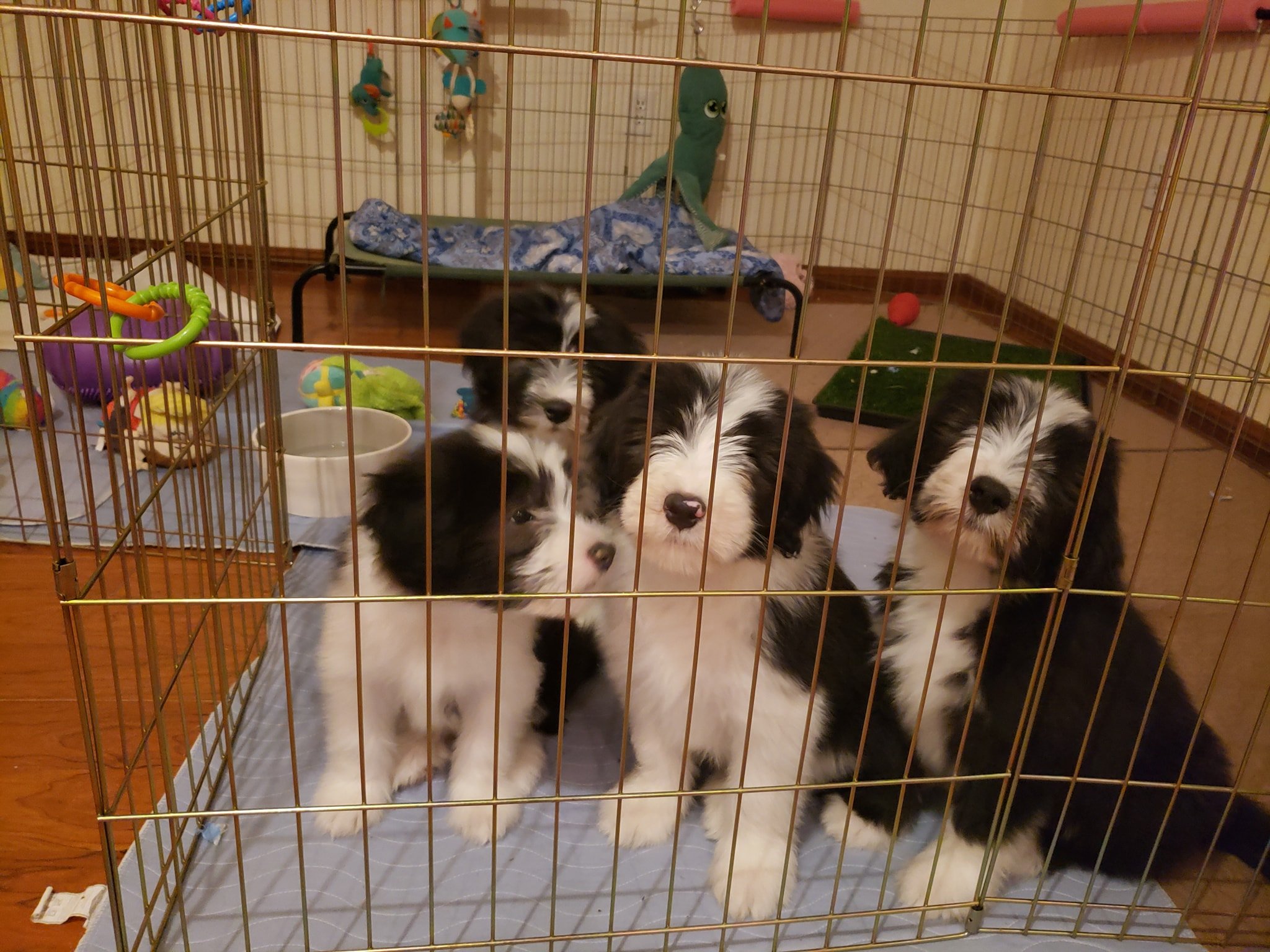How We Raise Our Puppies
A puppy’s first few weeks provide the foundation for a happy and successful life. Early socialization is the key ingredient to a confident, well-adjusted adult dog. We follow the Puppy Culture program from birth to 8 weeks, along with early neurological stimulation, and access to novel environments, surfaces, smells, and experiences so that our Beardies will be well equipped to handle just about anything that comes their way! Our puppies are raised inside our home, where they are the center of the household for their first two months. Regular nail trimming begins at just a few days of age, to accustom the puppy to having their feet handled. By the time they go to their new homes, they will have been bathed frequently, blow dried with a forced air dryer, experienced feet trimming and sanitary trimming. They will be accustomed to daily brushing and combing, all started slowly and in a way that the puppy has positive associations with the entire grooming process. They will have experienced the great outdoors, sounds of traffic, as well as several car rides. They will have had at least two trips to a veterinarian’s office, where they were smothered with love and attention by staff and patrons alike. By the time they are 8 weeks of age, all of our puppies have had a solid foundation for potty training on a grass pad in their puppy pen. The training pads can be purchased online and slowly transitioned outdoors to their future potty area. They will have baby obedience foundations, such as a verbal and hand signals for sit and down, and the start of a recall. They will have been introduced to walking on a leash and collar. By 8 weeks old, we also hope to have exposed them to some sort of livestock, either sheep or ducks, to see if the spark of a herding instinct is present.
All of our puppies will go home with two sets of core vaccinations and a permanent microchip. No puppy will be released to a new owner without a vaccination or microchip. We follow the American Veterinary Medical Association’s vaccine protocol which includes core vaccinations up to 16 weeks of age, and a rabies vaccine at 16 weeks. All new owners are expected to follow the current AVMA protocol as well, with titers in lieu of DAPP an acceptable substitute for a booster, provided the dog still has protective immunity.
All of the foundation work we do in the first 2 months has to be continued in their new home. Puppy obedience and socialization classes are highly encouraged by 4 months of age. Puppies should continue to receive exposure to age-appropriate novel environments, smells, sounds, and surfaces. They should be groomed frequently, and have their feet and ears handled daily, and teeth checked several times per week. For puppies whose owners intend to bring them to a professional groomer: EARLY AND OFTEN is necessary for the dog to learn to accept the grooming process in an environment full of strange sounds, smells and people. If you wait several months (or longer) in between professional grooming sessions, the dog will become matted, and grooming sessions will be unpleasant for the dog and the groomer, and the dog may develop fearfulness or aversion to the grooming process.
Dog parks are not recommended, especially for young puppies, as a negative encounter with a strange dog could cause your puppy to develop fearfulness. Dog parks are also known to harbor parasites such as fleas, ticks, and giardia, none of which are pleasant for the dog. Smaller play groups with dogs who are fully vaccinated and well-known by you are a safer bet, to ensure your puppy has only positive experiences with other dogs during his formative months. Dog friendly stores that do not cater to pets, such as Joanns Fabric, Home Depot or Nordstroms, make wonderful opportunities for exposing a puppy to novel environments without the distraction of other animals. They are also great places to work on training outside of your home!
Training does not end after Puppy Obedience Class! Your dog will continue to benefit from different types of training and enrichment throughout the course of his life. Many places offer classes in different dog sports, such as agility or trick dog training, and it is recommended to take some, even if you have no desire to enter any sort of competitions. Training classes will offer your dog mental and physical stimulation that they often do not get from simply walking around the block. They also are a way to teach your dog to focus on you with lots of distractions around, which is an indispensable skill should the dog ever accidentally slip out of his collar in public. Bearded Collies are incredibly intelligent dogs and they thrive best when you put their brains to work!
We highly recommend joining your regional Bearded Collie breed club as well. Many regional clubs offer get togethers called Beardie Bounces where the dogs can play with each other while the owners socialize. The club members can be a wonderful resource for training, grooming, and socialization of your new puppy!


